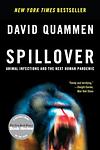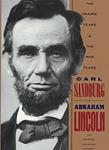The Greatest "Illinois, History" Books of All Time
Click to learn how this list is calculated.
This list represents a comprehensive and trusted collection of the greatest books. Developed through a specialized algorithm, it brings together 300 'best of' book lists to form a definitive guide to the world's most acclaimed books. For those interested in how these books are chosen, additional details can be found on the rankings page.
Genres
The "Illinois" category of books refers to literature that is set in or explores the history, culture, and people of the state of Illinois. This category may include works of fiction, non-fiction, poetry, and memoirs that are centered around the state's geography, landmarks, and notable events. Books in this category may also delve into the state's political and social issues, as well as the diverse communities that call Illinois home. Overall, the "Illinois" category offers a unique perspective on the state's rich and complex identity.
The category of "History" in books refers to the study and interpretation of past events, societies, and cultures. It encompasses a wide range of topics, including political, social, economic, and cultural developments, as well as the lives of individuals and groups who have shaped the course of history. History books can be written from various perspectives and may focus on specific time periods, regions, or themes. They aim to provide readers with a deeper understanding of the past and its impact on the present.
Countries
Date Range
Reading Statistics
Click the button below to see how many of these books you've read!
Download
If you're interested in downloading this list as a CSV file for use in a spreadsheet application, you can easily do so by clicking the button below. Please note that to ensure a manageable file size and faster download, the CSV will include details for only the first 500 books.
Download-
1. Twenty Years at Hull-House by Jane Addams
"Twenty Years at Hull-House" is a memoir that recounts the author's experiences co-founding and running a settlement house in a poverty-stricken, immigrant neighborhood in Chicago. The book details the struggles and triumphs of the community as they navigate social, economic, and cultural challenges, while also offering insight into the author's own evolution as a social reformer. Throughout, the author emphasizes the importance of empathy, understanding, and community engagement in addressing social inequality.
-
2. The Devil In The White City by Erik Larson
This book intertwines the true tales of two men during the 1893 Chicago World's Fair: Daniel H. Burnham, the architect responsible for the fair's construction, and H.H. Holmes, a serial killer masquerading as a charming doctor. The narrative alternates between the story of Burnham, his challenges and successes in building the fair, and the chilling story of Holmes, who used the fair to lure his victims to their death. It's a vivid portrayal of the Gilded Age and a chilling exploration of one of America's first known serial killers.
-
3. Team of Rivals: The Political Genius of Abraham Lincoln by Doris Kearns Goodwin
This book explores the political acumen of Abraham Lincoln, focusing on how he assembled his cabinet from political adversaries, many of whom initially dismissed him for his perceived lack of experience and ungainly appearance. The narrative delves into how Lincoln used his rivals' talents to navigate the tumultuous times of the Civil War, maintaining unity and leading the nation towards the abolition of slavery. It underscores Lincoln's extraordinary ability to turn rivals into allies, demonstrating his leadership and his profound impact on American history.
-
4. There Are No Children Here by Alex Kotlowitz
The book follows the lives of two young African-American brothers growing up in a public housing complex in Chicago during the 1980s. The narrative portrays their daily struggles with poverty, violence, and the drug trade, while also highlighting their dreams and hopes for a better future. The book provides an intimate and heartbreaking look at the harsh realities of inner-city life, systemic racism, and the failure of public institutions to support vulnerable communities.
-
5. Working by Studs Terkel
"Working" is a collection of over 100 interviews conducted with people from all walks of life about their jobs. The book provides a unique perspective on the daily grind, as it explores the experiences, thoughts, and feelings of individuals in various professions. The interviews reveal the mundane, the challenging, and the rewarding aspects of work, offering a deep understanding of the complexities of the working world. The subject matter ranges from blue-collar jobs to professional careers, giving voice to the often unheard stories of everyday workers.
-
6. Crusade For Justice by Ida B. Wells
"Crusade for Justice" is an autobiography that chronicles the life and work of a pioneering African American journalist and activist who bravely led an anti-lynching crusade in the United States during the late 19th and early 20th centuries. The book details her personal experiences with racial discrimination and her tireless efforts to document and fight against the injustices faced by African Americans. Her narrative provides a powerful insight into the civil rights struggles of her time and her unwavering commitment to justice and equality, making her one of the most significant figures in American social reform.
-
7. The Red Record by Ida B. Wells
The book in question is a pioneering work of investigative journalism and a searing indictment of lynching in the post-Civil War United States. The author, a prominent African American journalist and activist, meticulously documents the horrific practice of lynching, providing detailed accounts of specific incidents and statistical analysis to debunk the common justifications for such violence. The work exposes the systemic racism and injustice that African Americans faced, and it was instrumental in raising public awareness and galvanizing anti-lynching activism. The author's bravery in confronting this issue head-on, despite threats to her own life, underscores the book's importance as a historical document and a testament to the struggle for civil rights.
-
8. Spillover by David Quammen
The book explores the science behind zoonotic diseases—those that jump from animals to humans—and their increasing threat to global health. It delves into the origins and mechanisms of diseases such as Ebola, SARS, and HIV, tracing how these pathogens have crossed species barriers and spread through human populations. Through a combination of field research, interviews with scientists, and a detailed narrative, the book highlights the interconnectedness of human, animal, and environmental health, and stresses the importance of understanding these links to prevent future pandemics.
-
9. Grant by Ron Chernow
"Grant" is a comprehensive biography of the 18th President of the United States, Ulysses S. Grant. Written by Pulitzer Prize-winning author Ron Chernow, the book explores Grant's early life, military career, presidency, and post-presidential years. Chernow portrays Grant as a complex and often misunderstood figure, highlighting his military genius and leadership during the Civil War, as well as his struggles with alcoholism and financial ruin later in life. The book also delves into Grant's relationships with his wife, Julia, and political figures such as Abraham Lincoln and William Tecumseh Sherman. Overall, "Grant" offers a detailed and nuanced portrait of one of America's most significant historical figures.
-
10. Abraham Lincoln: The War Years by Carl Sandburg
This book is a comprehensive biography of Abraham Lincoln, focusing particularly on his leadership during the Civil War. It delves into Lincoln's political strategies, his role in emancipation, and his military leadership, providing a detailed and nuanced portrayal of his presidency. The book also explores Lincoln's personal life and character, offering insights into his relationships and his struggles with depression. It presents a vivid picture of a man who was both a shrewd politician and a deeply human individual, navigating one of the most tumultuous periods in American history.
-
11. The Fate of Liberty: Abraham Lincoln and Civil Liberties by Mark E. Neely, Jr
This book explores Abraham Lincoln's approach to civil liberties during the American Civil War. It examines the decisions he made that affected individual rights, such as his choice to suspend habeas corpus, allowing the government to arrest and detain individuals without a trial. The author delves into the complexities of Lincoln's decisions, the context in which they were made, and their impact on the country, offering a nuanced view of a president often hailed as a champion of liberty.
-
12. The Fiery Trial: Abraham Lincoln and American Slavery by Eric Foner
This book explores Abraham Lincoln's complex relationship with the institution of slavery, tracing his evolution from a moderate who sought to gradually abolish slavery to a radical who believed in immediate emancipation. It delves into his personal, political, and public life, his speeches, and his private correspondence to reveal a man grappling with the moral, legal, and social implications of slavery in a nation founded on the principle of freedom. The book provides a detailed examination of Lincoln's role in the abolition of slavery and the Civil War, offering a nuanced understanding of his legacy.
Reading Statistics
Click the button below to see how many of these books you've read!
Download
If you're interested in downloading this list as a CSV file for use in a spreadsheet application, you can easily do so by clicking the button below. Please note that to ensure a manageable file size and faster download, the CSV will include details for only the first 500 books.
Download










